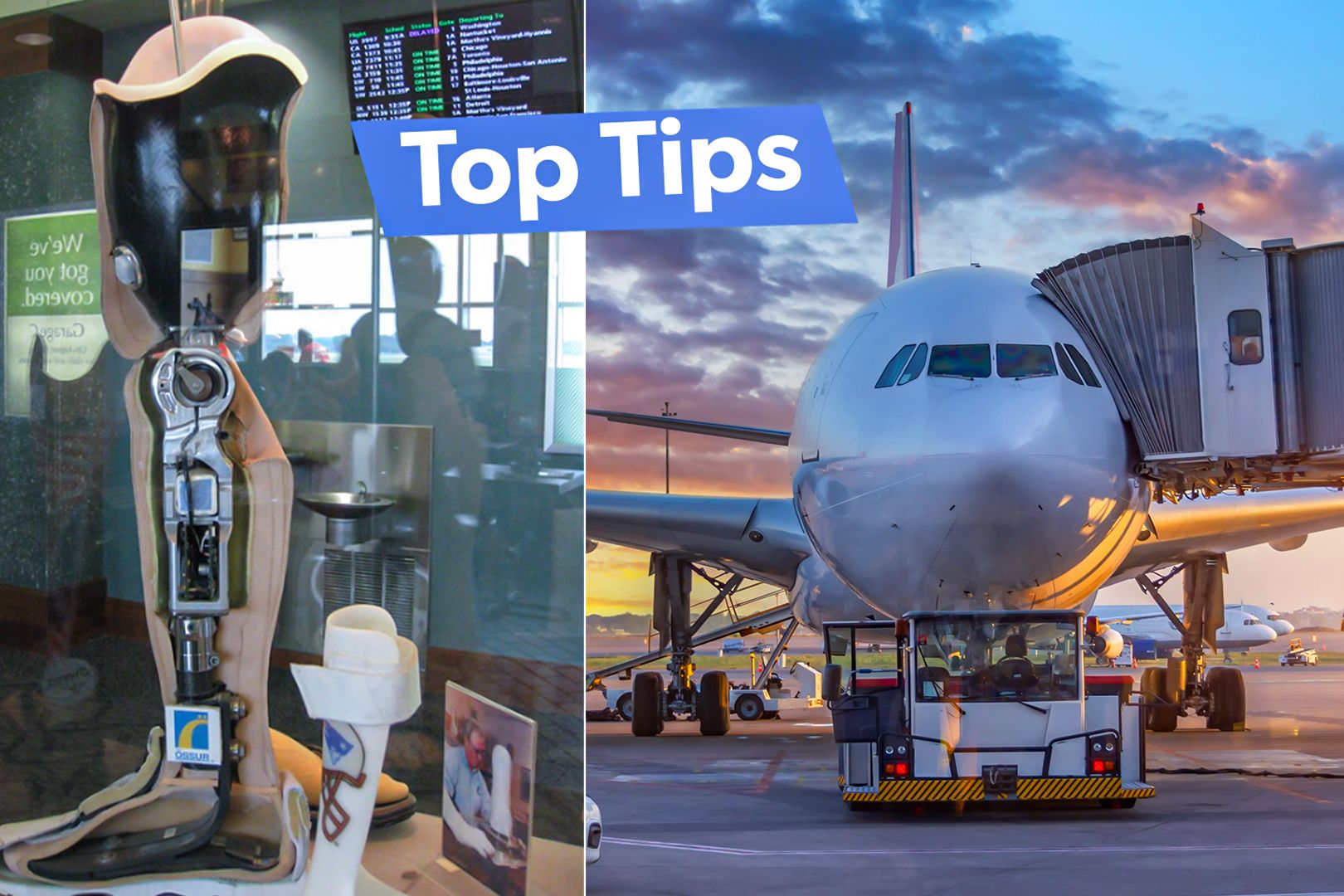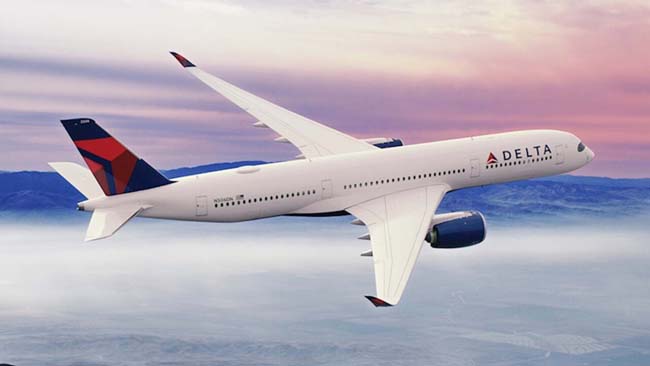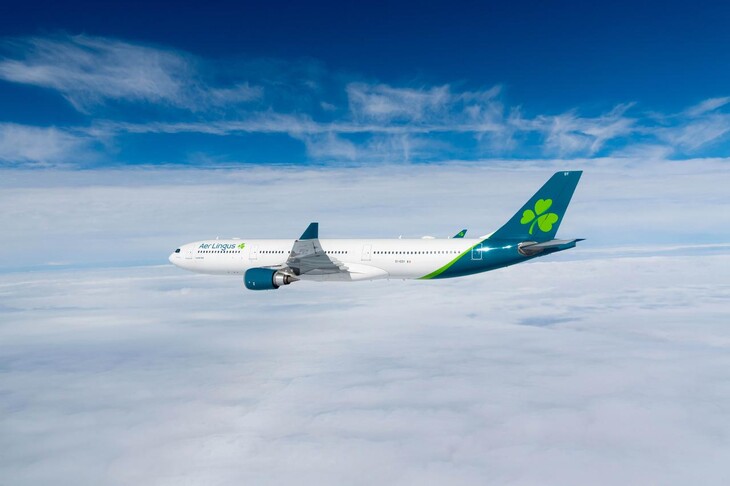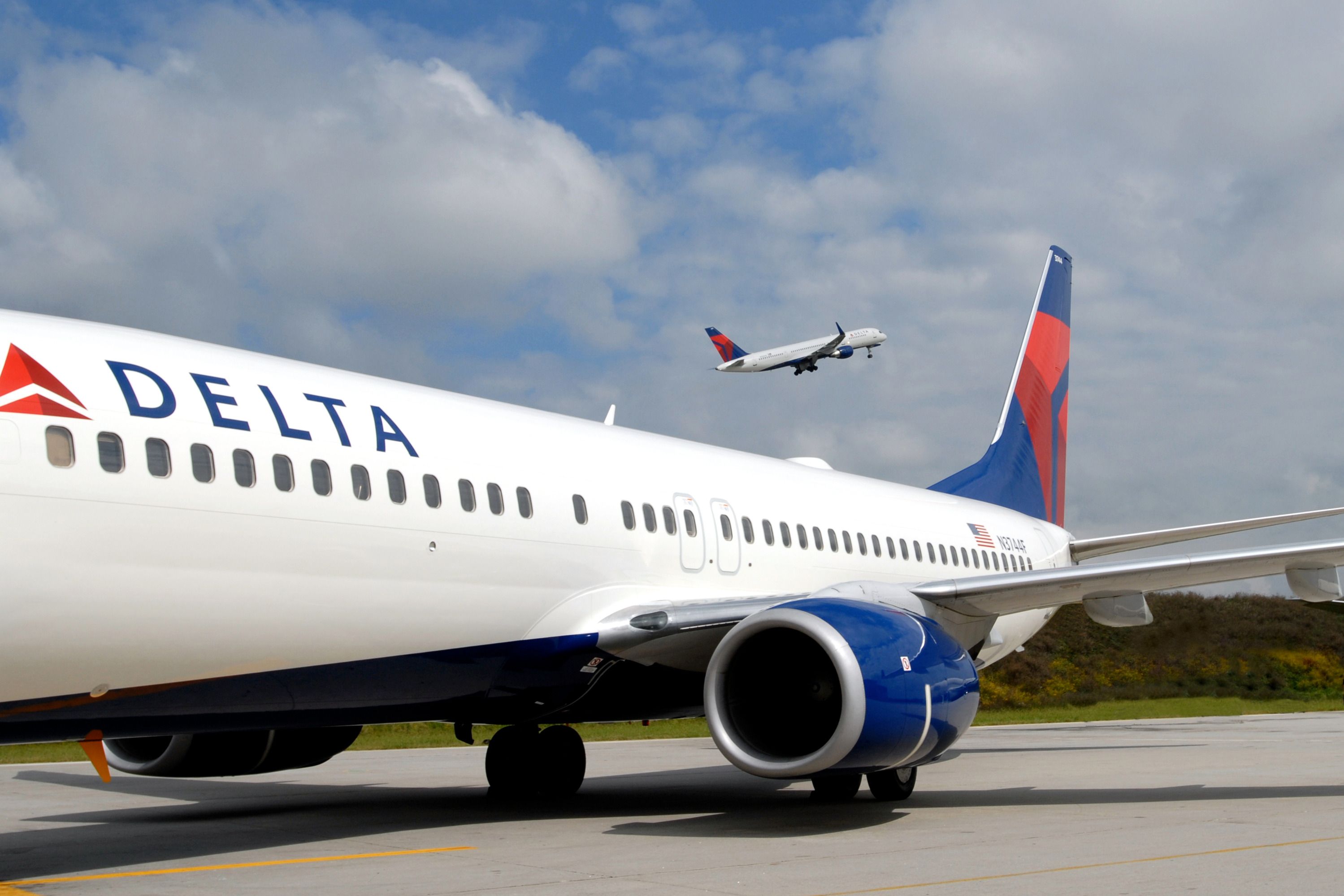Anyone can travel with prosthetic limbs - it is even possible for some pilots to fly as amputees . Airlines, airports, and the TSA endeavor to enable as many people to fly as possible and to help assist those with disabilities . Passengers can normally also fly with their medications, although it is best to check the rules about flying with medications in advance.
1 Inform the airline in advance Give airlines at least 48 hours notice of any requested assistance Wheelchairs: Airlines may provide wheelchair assistance Boarding: Some airlines permit disabled passengers to board early Period: At least 48 hours It is often best to inform the airline about one's prosthetic limb before the flight (and for any assistance that may be required). Airlines will typically make necessary accommodations for passengers in need. Passengers can also familiarize themselves with the Disabilities Act (ADA) and know their rights as a traveler with a disability.

If needed, passengers can request wheelchair assistance (after all, there is often long walking distances at airports to get to and from the gate). Delta states, " If needed, you may request pre-boarding at the gate for extra time to board the aircraft and stow your items ." A new program from Adelaide Airport and Virgin Australia is removing barriers that deter people living with disabilities from flying.
2 Airport security Passengers are permitted to pass through security with prosthetic limbs Permitted through security? Yes Remove prosthetic? Not required Tip: Inform TSA officer Passengers are permitted to pass through TSA security with prosthetic limbs. According to Delta Air Lines, passengers are not required to remove their prostheses as they pass through TSA (although they are asked to inform the officer). However, taking a prosthetic limb through security may take a bit more time, one suggestion is for eligible passengers to consider enrolling in TSA PreCheck to help speed up the process.
The TSA states " Your prosthesis, cast, support brace, sling or support appliance is subject to additional screening, including inspection, hand-held metal detector screening, a test of your hands, and a test of the medical device for trace of explosives. If your support brace alarms during this process, it must be removed for X-ray screening. " So far, the TSA has intercepted 28 guns this year, just at Reagan National Airport.
3 Prosthetics as carry-on baggage Airlines normally do not charge extra for carry on prosthetics Carry-on baggage policy: Varies by airline Extra charge: Generally none Longer prosthetics: Might be need to be checked in (with some airlines like Air New Zealand) While all airlines should accept prosthetics in the cabin, policies may vary from airline to airline. For example, Delta Air Lines states, " there is no additional charge for your prosthesis, and it is not counted towards your baggage allowance ." Air New Zealand, on the other hand, states, " Due to limited stowage space in the cabin you may be restricted to carrying only one spare limb as part of your cabin baggage, additional limbs may be stowed as checked baggage.
Please be aware that longer items (legs for above-knee amputees for example) may not be able to be accommodated in the cabin of the aircraft ." Europe is moving on. However, passengers in the US will have to wait to see changes.
4 Take an assistance kit as carry-on Delta suggests taking a prosthesis assistance kit What to take: Screwdriver, replacement parts, etc. Medical certificate: Suggested by some airlines Suggestion: Check what the TSA permits on aircraft Delta recommends taking an assistance kit on the aircraft. It states , " We recommend keeping your prosthesis assistance kit in your carry-on bag in case your flight experiences any unexpected delays .
" A small toolkit with essential items like screwdrivers and replacement parts can be brought on the flight. Having a toolkit enables people to make any needed adjustments and repairs during the trip. Note that the rules and procedures for taking prothestic limbs and toolkits through security can vary by country.
Air New Zealand states , " Aviation Security may want to see a medical certificate for your prosthesis from your physician or medical specialist. We encourage you to carry one of these certificates that can be shown to Security staff if requested ." Flying with golf clubs in the US can be easy, but there are some things to know in advance.
5 Contact TSA Cares Contact the TSA at least 72 hours before flying Phone number: (855) 787-2227 Fill out form: TSA Cares form Tip: Private screenings can be requested Those passing through TSA screening can contact the services of a TSA Passenger Support Specialist (PSS) by completing the TSA Cares form call calling TSA Cares at least 72 hours before departure. TSA provides special services for those with disabilities or medical conditions and passengers who need additional screening assistance. According to the Amputee Store , TSA Cares is open on Mondays through Fridays from 08:00 to 23:00 EST.
On weekends and holidays, it is possible to speak to a representative or specialist from 09:00 to 20:00. Passengers can fill out a Notification Card and hand it over to the TSA officer (it notifies the officer of one's disability or other issue discreetly)..



















